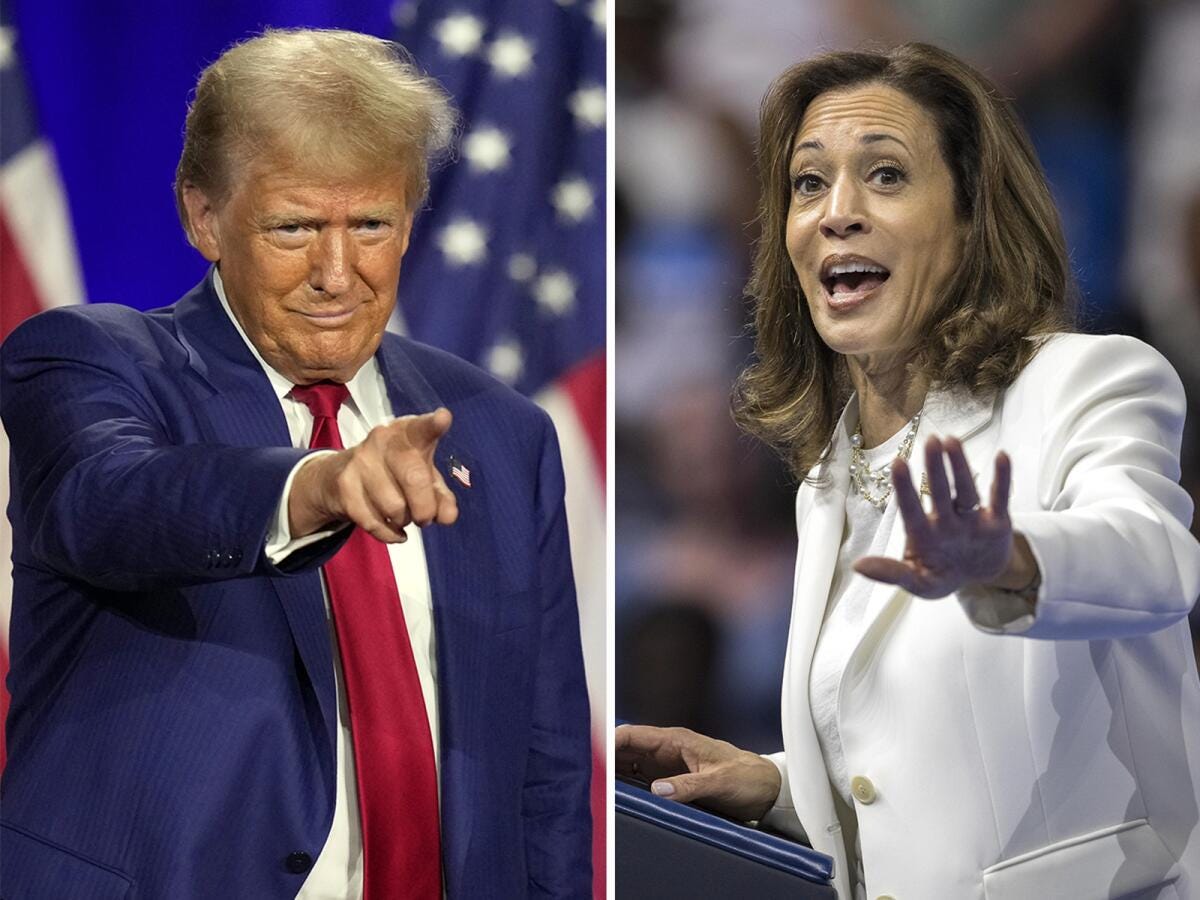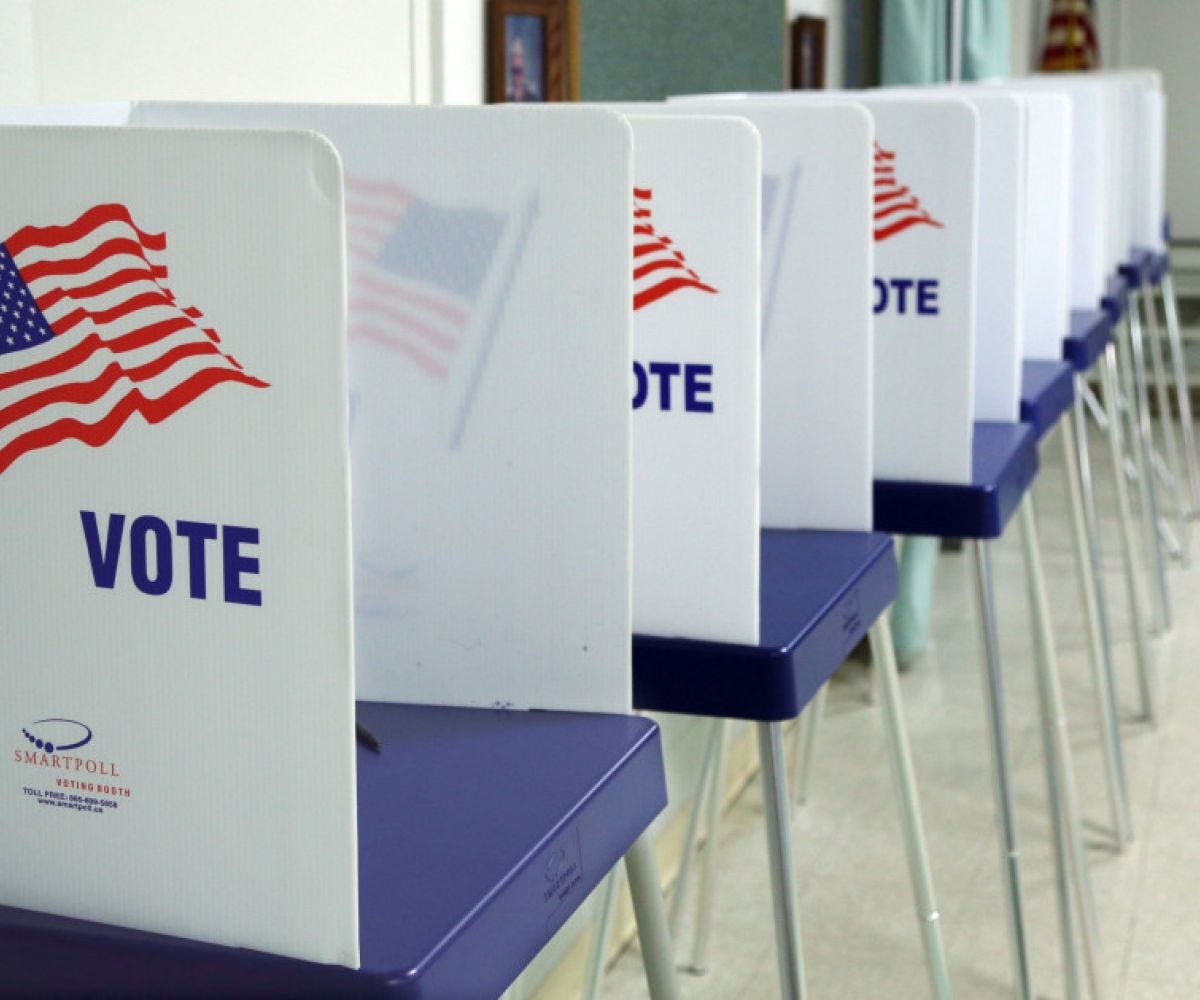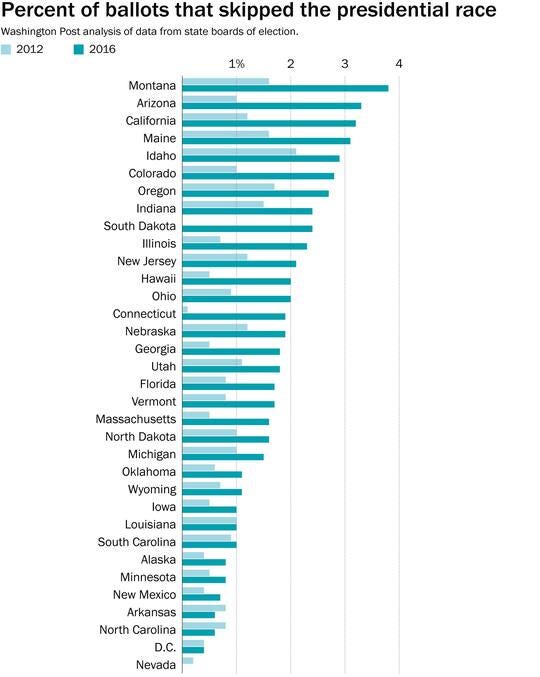To vote or not to vote? That is the question.
When it comes to "holding your nose and voting for the lesser of two evils," you should refuse to endorse the lies of a corrupt system.
With just about 60 days until the US election, a stark reality has become painfully clear: the choices we face are abysmal. It’s not just a matter of choosing left versus right, conservative versus liberal, or even Democrat versus Republican. We’re being asked to make a selection in support of a system that is rife with (as well as perpetuates) dishonesty, corruption, and a betrayal of public trust at nearly every level.
Aleksandr Solzhenitsyn’s words in "Live Not by Lies" echo a profound truth: to live with integrity means to refuse to participate in falsehoods, even when cloaked in the guise of civic duty. Solzhenitsyn challenges us not to raise a hand in support of proposals or candidates that are dubious or unworthy.
And thus, overcoming our timidity, let each man choose: Will he remain a witting servant of the lies (needless to say, not due to natural predisposition, but in order to provide a living for the family, to rear the children in the spirit of lies!), or has the time come for him to stand straight as an honest man, worthy of the respect of his children and contemporaries? And from that day onward he:
Will not write, sign, nor publish in any way, a single line distorting, so far as he can see, the truth;
Will not utter such a line in private or in public conversation, nor read it from a crib sheet, nor speak it in the role of educator, canvasser, teacher, actor;
Will not in painting, sculpture, photograph, technology, or music depict, support, or broadcast a single false thought, a single distortion of the truth as he discerns it;
Will not cite in writing or in speech a single “guiding” quote for gratification, insurance, for his success at work, unless he fully shares the cited thought and believes that it fits the context precisely;
Will not be forced to a demonstration or a rally if it runs counter to his desire and his will; will not take up and raise a banner or slogan in which he does not fully believe;
Will not raise a hand in vote for a proposal which he does not sincerely support; will not vote openly or in secret ballot for a candidate whom he deems dubious or unworthy;
Will not be impelled to a meeting where a forced and distorted discussion is expected to take place;
Will at once walk out from a session, meeting, lecture, play, or film as soon as he hears the speaker utter a lie, ideological drivel, or shameless propaganda;
Will not subscribe to, nor buy in retail, a newspaper or journal that distorts or hides the underlying facts.
This is by no means an exhaustive list of the possible and necessary ways of evading lies. But he who begins to cleanse himself will, with a cleansed eye, easily discern yet other opportunities.
Yet in today’s political landscape, almost every choice feels like a surrender to that very deceit.
The common refrain to "vote for the lesser of two evils" rings hollow when every candidate represents at best a compromise and at worst an outright betrayal of trust. Participating in this charade means endorsing a structure that is completely hollowed out and broken down, where truth is put on the back burner in favor of expediency and where the real needs of the people are drowned out by the roar of corporate money and power-hungry politicking.
Choosing the lesser of two evils does not absolve you from the consequences of that choice. Whether it’s a candidate with questionable intelligence and integrity or a proposal that skirts the edges of what’s morally acceptable, voting for the lesser evil is still opting for evil. It's a tacit agreement that this is the best we can do, that we should settle for mediocrity, dishonesty, and a lack of accountability from those who claim to represent us.
Many may argue that the alternative — not voting — is surrendering your voice and abdicating your civic duty. But what does it mean to participate in a system that has repeatedly shown itself to be wholly unworthy of our trust? To cast a vote for a candidate you do not believe in is a betrayal of your own beliefs and an endorsement of the lie that our system still works, that the will of the people is being represented, and that the elected will act in our best interest.
In truth, the act of voting has been reduced to a hollow ritual — a performance that allows the public to feel engaged while the real decisions are made behind closed doors, influenced by those with the deepest pockets and the most to gain. Refusing to participate in this farce is not surrender; it’s a powerful statement that you will not lend your support to a system that has repeatedly failed its citizens.
If all the choices are corrupt, what is left for the individual who values truth and integrity? Refusing to vote is not a failure of civic responsibility; it is an act of resistance. It’s a refusal to play a game rigged against you, where the rules are designed to ensure that, no matter what, the power structure remains unchanged. By not participating, you are not opting out of democracy; you are rejecting the lie that what we have is a democracy worth upholding and not just mob rule.
So what are the alternatives?
You could lodge a protest vote. In 2016, nearly 2 million people cast a ballot without opting for the lesser of two evils in the presidential race.
Or perhaps the electoral process is so compromised that it’s time to look beyond it. Would some sort of direct action, a real take-to-the-streets protest for example, be an effective way to say, loudly and clearly, that we do not consent to be governed by the corrupt and unworthy?
At the very least, if the existing system has failed we should look at building alternatives. This could mean supporting independent media that holds power accountable, creating community networks that bypass failing public services, or investing in cooperative and decentralized economic models that prioritize people over profit.
In the meantime, we should hold public officials accountable beyond the ballot box with constant pressure, relentless demands for transparency, and a refusal to comply with policies and practices that are unjust. This means not just complaining but taking tangible actions, such as not supporting businesses that fund corrupt candidates, or pulling your money out of banks and institutions that perpetuate the status quo.
Stop accepting the narratives that tell you your only options are the ones presented by the establishment. If you find every candidate unworthy, say so. Loudly. Use every platform available to express your dissatisfaction, and encourage others to do the same. Let them know that the system’s legitimacy is contingent on the consent of the governed — and you do not consent.
Refusing to live by lies, as Solzhenitsyn calls us to do, is itself a political act. In a corrupt system, the most honest thing you can do is to withhold your support and look for every possible way to build something better. This election season, let your refusal to participate in the lie be a statement of your commitment to truth and integrity and not tacit support for a system that does not care about you.






In every election I’ve ever participated in, I have always been dissatisfied with my choice but pulled the lever anyway. I’ve now come to a clearer understanding that this doesn’t sit well with me anymore. It’s not that these candidates have minor flaws or imperfections. They are deeply corrupt and stand for things I cannot condone.
I think we have to break the current system somehow. Not voting isn't going to do it. I agree with don't comply with things you don't agree with. State your opinion when you can even if it's uncomfortable. Support free speech as much as you can, all is lost without it. I agree with there being no perfect candidate. Compromises like Kennedy had to make are at times necessary. Silence doesn't work.